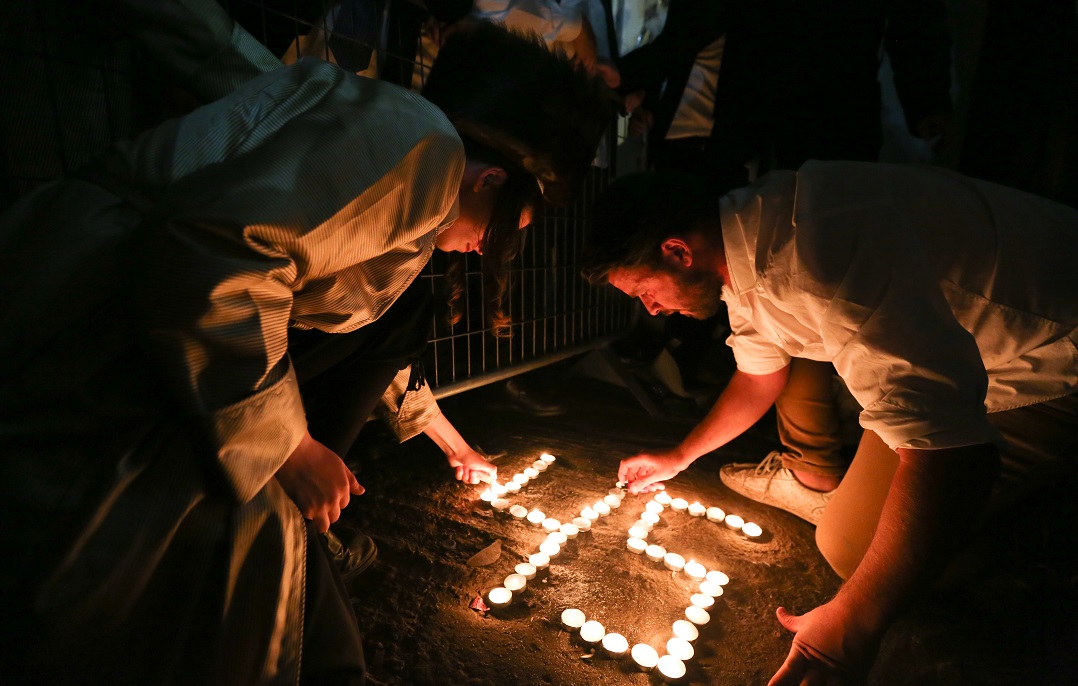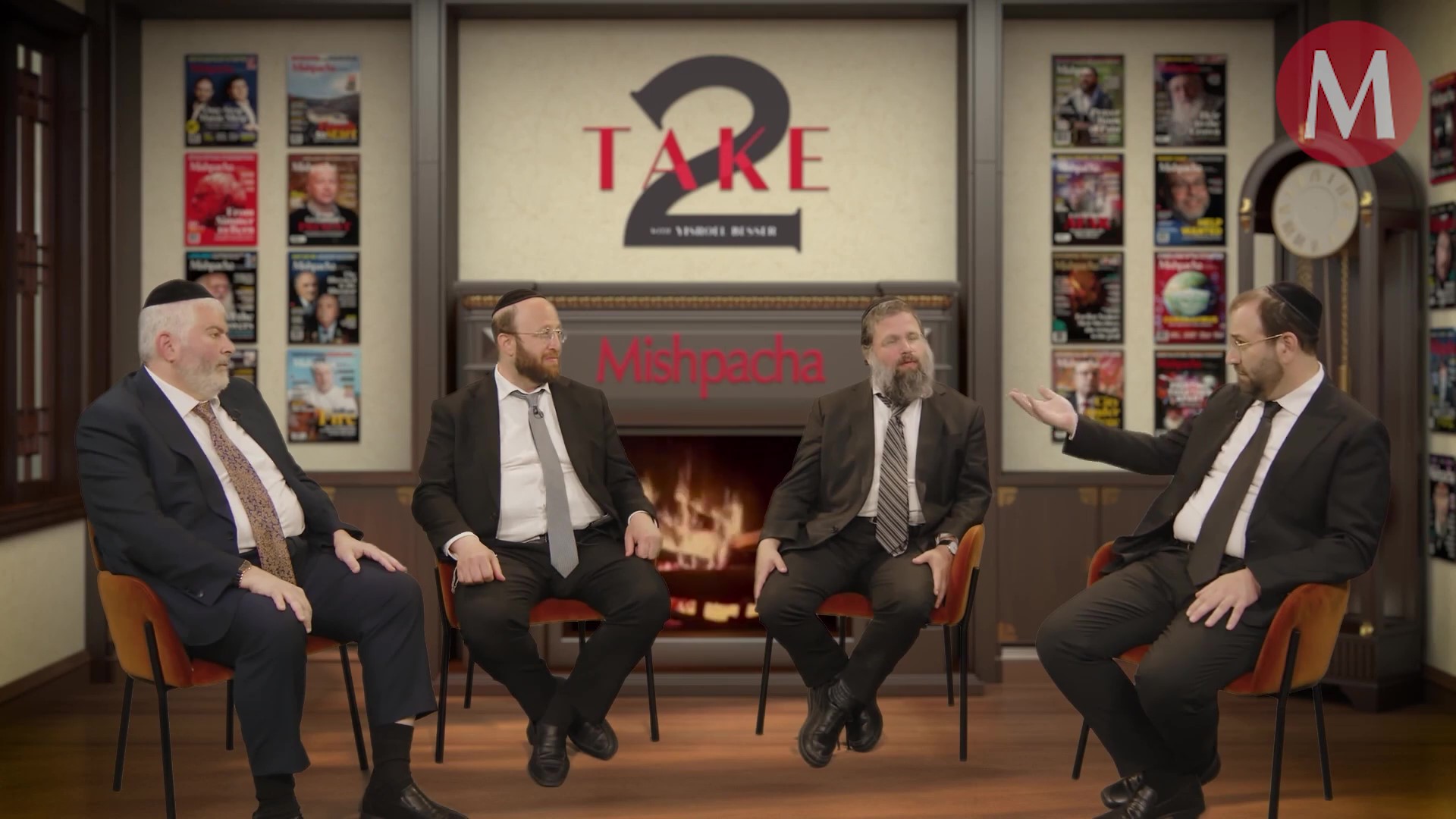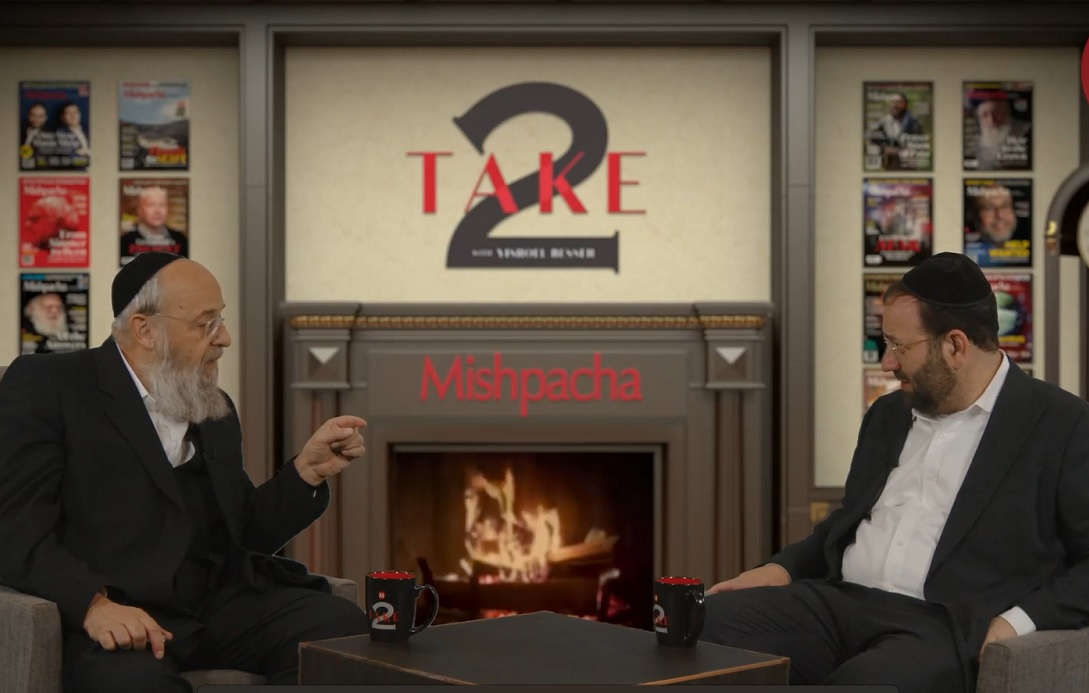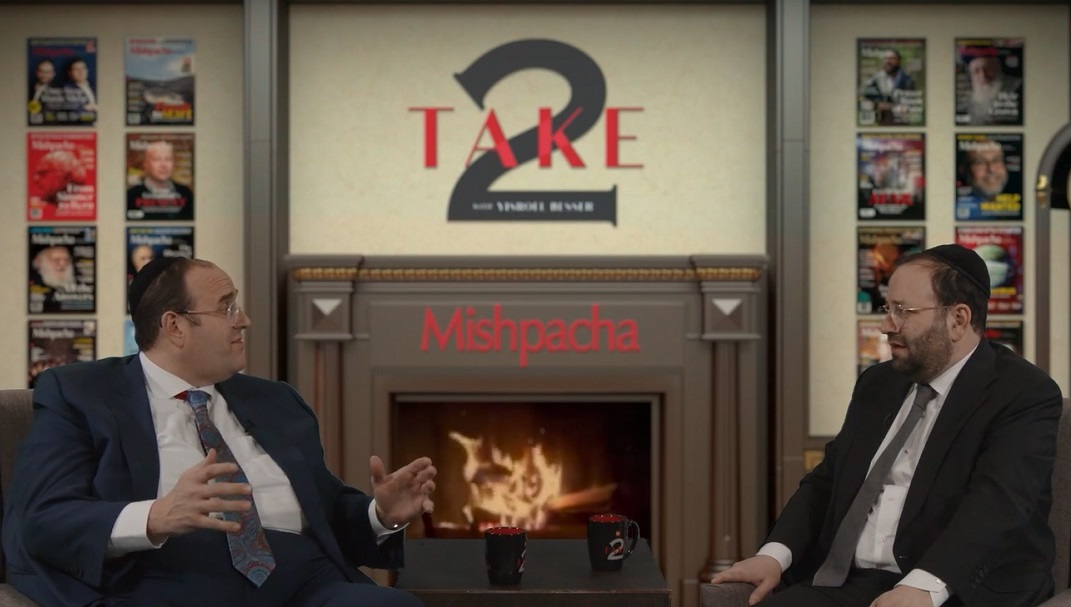The Pain is Unfathomable

I tried to convince all four siblings that everything was okay. After all, if all the families had been notified, there was nothing to worry about. And then ZAKA puts out another message: NO families have been notified

(photo: Flash90)
O
n Lag B'omer night, I chose to stay home and watch the Toldos Aharon hadlakah live broadcast.
There’s an image imprinted on my mind from the uplifting moments before the Toldos Aharon hadlakah. As I watched the live broadcast, singing along with Ani Maamin and joining in Kabbalas Ol Malchus Shamayaim, the camera zoomed in on two adorable children, saying the words with such concentration and sweetness, counting to seven on their little fingers.
In a way, it was the essence of Meron on Lag B'omer: you bring the little ones to let them feel the kedushah, and they do.
T
hen the rebbe lit the medurah, and everybody burst into singing and dancing. I'm sobbing now, remembering those last happy moments.
After 20 minutes or so, I heard them calling "Hatzalah!" That’s a regular occurrence in this crowded space, and after a moment the music and signing and dancing resumed. But then it was "Hatzalah!" again, directing Hatzalah to the exact place where they were needed. Now I was curious, but I was also hungry, and went to eat something. I came back half an hour later... only to find that they were already counting bodies, 15 by then, and more by the moment.
The shock I went into probably didn't leave me until this very moment, Sunday noon, as I'm writing this. Seeing the ZAKA body bags, saying Tehillim, begging Hashem that the number wouldn't go up...but it did and then it was 22, 28… As it climbed above 40, it was declared the worst peacetime disaster in Israel.
I watched in disbelief, numb. I told my colleagues on the Mishpacha WhatsApp chat that I know I'm in shock because I'm not crying. I can't cry. I can't process. Nobody can. The videos started to circulate. As I watched the scenes in horror, my mind slowly started to comprehend what was taking place.
Just as I decided to try to sleep for a bit, I noticed my cousin’s status light up with a picture of her brother, asking for anyone who’d seen him to call.
I quickly texted her. “Did you find him yet?”
“No.”
I
sprang into action mode, posting the picture on my own status, my Twitter account, and the Mishpacha group, asking for help from anyone who could help us locate Simcha Bunim Diskind.
Within moments, I had several contacts, and someone from Mishpacha made sure the picture was sent to the staff at Rambam Hospital — the only hospital my cousins had not managed to check yet — to see if anyone there recognized him.
The contacts I passed along to my cousin turned out to be helpful, but we still couldn't find him. Her messages were getting more and more frantic, but I thought she might be overreacting. He could have lost his phone, had problems getting home, and there was also no reception in the area.
אם ראיתם את בן דוד שלי, נכון לרגע זה אין לנו מושג איפה הוא. אנחנו מקווים שרק איבד את הטלפון. אז אם הוא לידכם באוטובוס או ראיתם אותו במירון או אתם יודעים איפה הוא עכשיו אנא צרו קשר.
או שרק תשתפו. pic.twitter.com/XqHEjOS1IP— Tzippy Yarom-Diskind 💉 صِپورة (@zpyarom) April 30, 2021
At 6:46 a.m., there was a report on a chareidi radio station that every family of the niftarim had been notified already. I rushed to reassure my cousin. "We didn't find him at any hospital, and you weren't notified. That means he's alive," I texted her.
I tried to convince all four siblings that everything was okay. After all, if all the families had been notified, there was nothing to worry about.
And then ZAKA puts out another message: NO families have been notified.
T
hat moment hit us all like a ton of bricks.
His mother, who’d finished Sefer Tehillim more than once through the horrific night
His siblings.
Me.
That was the moment I realized we were in a scene all too familiar from live media reports during the terror attacks Israel has experienced too many times. We searched and he's nowhere to be found and it's 8:00 a.m. — it makes no sense that he couldn’t get in touch yet.
I knew the answer, yet I didn't want to face it or say it aloud.
My cousin returned from shul to find friends from ZAKA waiting. They told him they had taken care of his brother. His brother's body. They recognized his face, and his ID was in his pocket. That's it.
It’s 9:00 a.m. Erev Shabbos, and there is a levayah to arrange. The hours following the news are filled with confusion, with the family waiting outside Abu Kabir for many nerve-racking hours before formally identifying him at 3:30 p.m.
Another precious 90 minutes passed before the actual release (due to a technical error printing the burial license).
Finally, a seven-minute levayah takes place in Haifa at 6:15 p.m.
And then it was Shabbos.
A
ll Shabbos, I thought about our family’s horrific experience, multiplied by 45, and the ripple effects felt around the world — and I know that no human can truly comprehend this, ever.
All I could do was listen to some divrei chizuk and hope that this really was Mashiach's last footstep before he arrives.
Oops! We could not locate your form.













